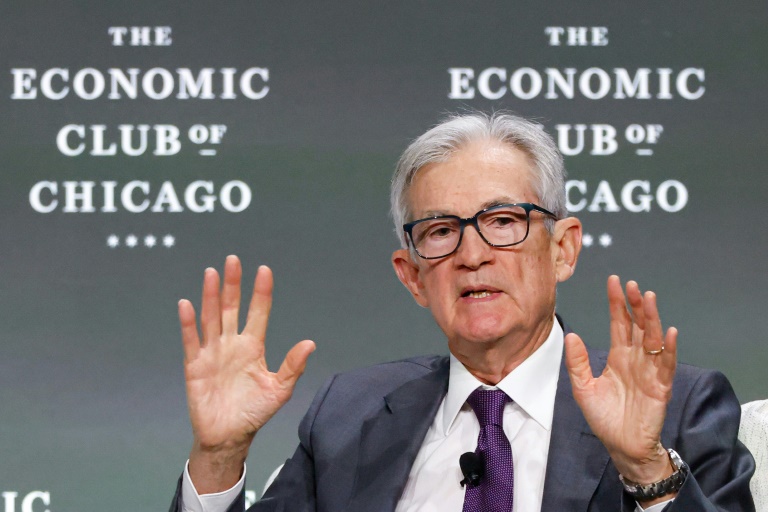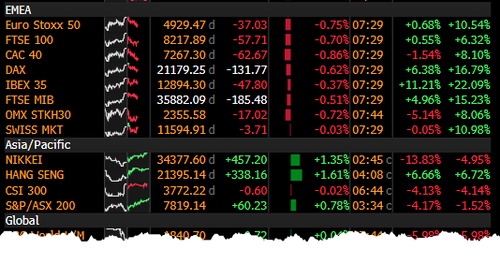Soaring US tariffs are pushing Chinese manufacturers to issue profit warnings and explore moving production abroad or adjusting prices.Trump’s escalating tariffs, now up to 54 per cent, are disrupting Chinese exporters’ strategies to counter the ongoing trade war.Experts highlighted the significant strain on global supply chains and the increasing challenges for Chinese suppliers to remain competitive.
BEIJING, April 9 — Chinese manufacturers of goods from tableware to flooring are flagging profit warnings, scrambling to plan new overseas plants or accelerate offshore projects, while haggling with customers over prices as they reel from President Donald Trump’s tariffs.Last week, Trump introduced an additional 34 per cent tariff on Chinese goods as part of steep levies imposed on most US trade partners, bringing the total duties on China this year to 54 per cent and sending global stock markets tumbling.While some in China’s corporate sector have put on a brave face and said the tariffs will have little impact on operations and margins, others have revealed through corporate filings emergency plans to curb losses.

For many, Trump’s blanket tariffs threaten to upend supply chains, and navigating the twists and turns of business negotiations and trade policy has become increasingly difficult. His world-wide tariffs strike Chinese exporters’ two main strategies to blunt the impact of the trade war: moving some production abroad and increasing sales to non-US markets.“It’s like throwing darts blindfolded.
You don’t know what direction you’re going in. You don’t know where the tariffs are going to land,” said Larry Sloven, who has sourced from China for major US retailers for more than three decades.“Once the hammer drops, you don’t know where the hammer will fall after that.
” Chinese suppliers of low-end goods to US conglomerates that are already operating on razor-thin margins have been hit particularly hard.Fuling, which sells eco-friendly tableware to US fast-food giants including KFC and McDonald’s , said this week in response to fluctuations in its stock price that Trump’s tariffs would “further negatively impact the company’s operations”.The company, which was designated a “manufacturing champion” by Zhejiang provincial authorities last year, said it would try to launch a new production facility in Indonesia this year that would take over part of the US-facing production in China, but until then the company’s profitability could be affected.
A 20 per cent tariff imposed on China by the Trump administration earlier this year has already been detrimental as “major US clients asked the company to absorb part of the increased tariff costs,” Fuling said.Suppliers of key raw materials used in electric vehicles are also trying to find alternatives to China-based manufacturing.Lopal, which supplies lithium iron phosphate cathode materials – a crucial component in making the lithium batteries that power EVs – said this week it would look for opportunities to build a second overseas plant to “decrease the tariff’s effect on the company as much as possible.
”Trump’s tariffs are also taking a toll on Chinese companies with US manufacturing capacity.Tianzhen, which sells flooring products, said that while its planned production capacity for its US factory is 20 million square metres, its raw materials, equipment, and spare parts sourced from other countries will be impacted by the tariffs, according to a report from China’s official Securities Times.On Tuesday, China vowed to “fight to the end” after Trump said he would impose an additional 50 per cent duty on US imports from the world’s No.
2 economy on Wednesday in response to Beijing’s decision to match the duties Trump unveiled last week.Tariffs tollSome Chinese firms have even published hypothetical scenarios to help investors gauge the impact of tariffs.PXI Auto Components, a Suzhou-based seller of car cooling and heating systems, said in a filing last Thursday that if the company partially bore the cost of Trump’s additional tariffs at rates of 5 per cent and 10 per cent, going by last year’s total net profit of 95.
25 million yuan (RM58 million), it would respectively lose 11 million yuan and 22 million yuan in profit.“To address risks posed by trade frictions, the company has established manufacturing bases and sales subsidiaries abroad,” PXI said, pointing to its wholly-owned subsidiary in Mexico, and two majority-owned entities in the US and Spain.Not all the affected Chinese companies have proposed building factories in the US or other countries as a strategy to deal with Trump’s tariffs.
Hosemaker Zyfire said last week it “has responded to the situation by stocking up and negotiating with customers on pricing, so as to reduce to a certain extent the impact of the levies on its major products.”Ningbo Gangzetong, a logistics company based in the port city of Ningbo that transports products made by Amazon vendors to overseas markets like the United States, said on Chinese social media platform WeChat that as a result of the new tariffs all previously quoted prices were now void.The post was taken down days later by WeChat for violating rules, a platform notice showed, without elaborating.
“In previous rounds of tariff adjustments, our company has absorbed the costs ourselves,” Ningbo Gangzetong said in a letter to its customers posted on its official WeChat account.“However, this time, we are left with no choice but to make necessary adjustments.” — Reuters.
Business

Once-thriving Chinese exporters fighting for survival amid tariff nightmare

Soaring US tariffs are pushing Chinese manufacturers to issue profit warnings and explore moving production abroad or...















